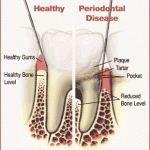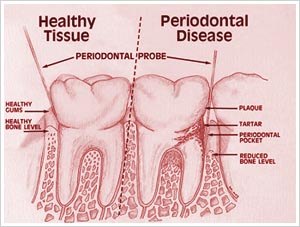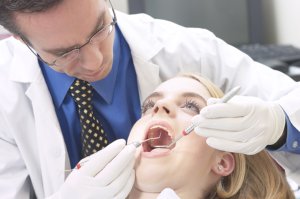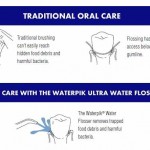 Waterpik is an oral irrigating system that uses a stream of water to clean the teeth as well as below the gum lines (also known as gingival margin). As brushing and flossing will not reach that area, plaque and bacteria can accumulate and proliferate, leading to gum diseases. Continue reading
Waterpik is an oral irrigating system that uses a stream of water to clean the teeth as well as below the gum lines (also known as gingival margin). As brushing and flossing will not reach that area, plaque and bacteria can accumulate and proliferate, leading to gum diseases. Continue reading
Tag Archives: diabetes
What Is a Dry Socket?

pain after third molar removal
A tooth socket holds the tooth in place by connecting its roots to the underlying alveolar bone. After a tooth is pulled, a blood clot forms over the socket to protect the bone and nerves underneath. Dry socket also known as alveolar osteitis is a common condition occurring few days after an extraction where the clot becomes dislodged or dissolves. It attracts air, food, fluid and almost anything that enters the mouth which leads to bacterial infection and results in severe pain. Dry socket delay healing of surrounding tissues and alveolar bone. Higher incidence of dry socket occurs after removal of impacted mandibular third molars followed by upper molars, premolars, canines and incisors. It occur twice more often after single tooth extractions when compared to multiple extractions completed at the same time. It occurs in those around the ages between 20 and 40. Continue reading
Diabetes and Gum Disease
What is gum disease?
Gum disease is an infection in the gum tissues and bone that keep your teeth in place. There are two types of gum disease, gingivitis and periodontitis.
- Gingivitis is the inflammation of gums caused by bacteria and plaque. This form of gum disease does not include any loss of bone and tissue that hold teeth in place. It is reversible. If left untreated, it can progress to a more severe form, periodontitis, which is irreversible.
- Periodontitis is the inflammation around the tooth. Gums pull away from teeth and form spaces, which become infected as bacteria and plaque spreads. Eventually, the bones, gums and tissue that support the teeth are destroyed. As a result, teeth become loose. Continue reading
How to stop bone loss in teeth naturally
What does it mean by dental bone loss?

Bone loss
For our convenience, the term bone loss is differentiated to two types in our mouth. The loss of bone specifically involving jaw (alveolar) bone area but are not involving teeth is referred as dental bone loss. Meanwhile, teeth bone loss means loss of roots of teeth or the jaw bone surrounding teeth. At times, it is possible to have both bone loss happening simultaneously. Continue reading
Oral Health: Relationship between the body and mouth II
Continue from section I…
Is there a way to link oral signs and symptoms to certain diseases?
In some diseases, there can be very specific oral health presentations or manifestations. In fact, there are times where the mouth is the first site to show signs of an underlying systemic condition, preceding clinical diagnosis by months. Hence it is important that if you noticed any sudden changes in your mouth that cannot be relate back or correspond to a known cause, it may be wise to monitor those changes. If the abnormal changes persist for weeks or become symptomatic, it is best to get it checked out by a dentist as soon as possible to prevent late diagnosis and complications.
Below is an outline of possible oral health problems or presentations under some of the common conditions or diseases of the body: Continue reading
Oral Health: Relationship between the body and mouth I
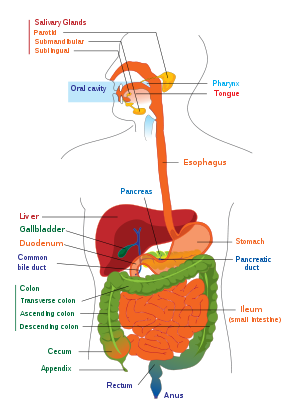
Relationship of the mouth to the body
As stressed in previous articles, oral health can influence our general health and vice verse. In fact, some changes in our general health are often reflected in the oral cavity and at times, can even precede clinical diagnosis of the systemic condition.
What are the common body changes that affect our oral health?
Hormonal changes in the body can often be a source of drastic oral health changes despite patients having fairly good oral hygiene. A hormone imbalance in the body, such which occurs during pregnancy or puberty spurt, can modify behaviors of cells in our body, in particular our immune system. Continue reading
Oral Health Pt 3: Importance of saliva
Continued from Pt 2…
Saliva is an integral part of oral health and many people do not actually realise the importance of saliva has in our mouth. The role of saliva is often underplayed due to lack of awareness. Saliva has many important functions and it is unfortunate that most people would only realise this when they have a chronic case of xerostomia or dry mouth, which is often hard to manage as treatment available involves mainly palliative care rather than a cure.
Function of saliva
There are three major salivary glands found in the mouth, along with many more minor ones. Each of the major salivary glands produces slightly different quality of secretion, some being more watery and others with a thicker consistency. All these secretions are combined together in the mouth to form saliva. Saliva consists of mainly water (95%), enzymes, salivary proteins and ions. Continue reading
How Diabetes Can Affect Your Oral Health Part 3
Continuation of Part 1 and Part 2
Diabetes and periodontal (gum) disease
Examination of the mouth may reveal conditions common in poorly controlled diabetes. Diabetes has long been considered an important factor that influences the risk of periodontal diseases (gingivitis and periodontitis). Compared to non-diabetics, the prevalence and severity of periodontal diseases are increased in individuals with both type 1 and type 2 forms of diabetes. Individuals with diabetes are up to 3 times more likely to have gum attachment loss and bone loss than non-diabetics. For diabetics older than age 40, severity of periodontal disease increases with years of disease duration and the risk of losing all your teeth is 15 times greater in diabetic population then the non-diabetic. Continue reading
How Diabetes Can Affect Your Oral Health Part 2
Continuation of Part 1
A visit to the dentist
Every dental office will treat anyone having diabetes mellitus (DM). On your first visit, you will be asked to fill out a personal medical and dental history for the use of the dentist. Any critical information pertaining to diabetes should be added to the medical and dental history record, which would include information on dosage, time schedules, method of administration, previous adverse experiences with insulin control, number of hospitalizations, and physician recommendations. A good rapport with your dentist is necessary to treat any complications in your mouth.
Continue reading
How Diabetes Can Affect Your Oral Health Part 1
Diabetes mellitus (DM), one of the most widespread diseases, is a common endocrine disorder that affects an estimated 16 million Americans and these numbers are increasing substantially. Individuals with diabetes face shortened life spans and have the probability of developing acute and chronic health complications. Only heart disease and cancer kill more Americans than diabetes and its complications.
Probably at least 50% of diabetics with mild or early disease pass unrecognised and this proves most unfortunate since early and continued treatment can help prevent some of the disastrous consequences of DM. These consequences can range from blindness, to amputations of limbs, gum disease, kidney failure, high blood pressure, nerves disorders, heart disease and a large reduction in the quality of life. The mouth is also part of the many parts of the organs of the body affected by DM.
Before we continue on to the main topic on how diabetes can affect your oral health, let us lay down some facts about the endocrine disorder. Continue reading
